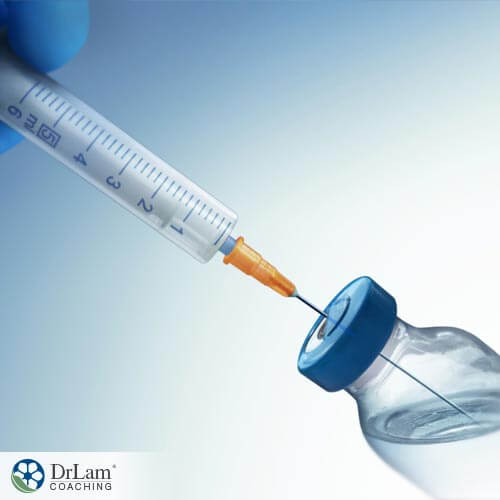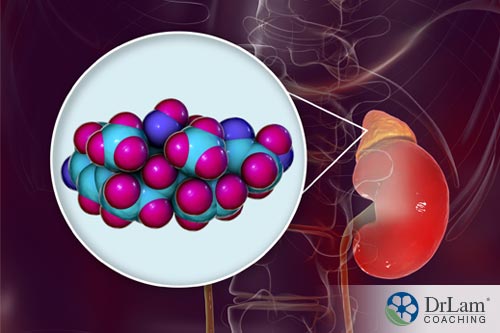 When it comes to cortisol vs cortisone, both of these steroid hormones naturally produced in your body play multiple crucial roles to help your body function. Imbalance in any of these hormones can seriously affect your body’s natural stress-fighting ability and give rise to various unpleasant symptoms. This can raise the risk of several health issues including fatigue. A healthy level of these hormones helps your body function effectively and helps you avoid serious complications.
When it comes to cortisol vs cortisone, both of these steroid hormones naturally produced in your body play multiple crucial roles to help your body function. Imbalance in any of these hormones can seriously affect your body’s natural stress-fighting ability and give rise to various unpleasant symptoms. This can raise the risk of several health issues including fatigue. A healthy level of these hormones helps your body function effectively and helps you avoid serious complications.
Both cortisol and cortisone are steroids secreted by your adrenal glands, walnut-shaped glands that are located above the kidneys and which secrete several vital hormones essential for healthy functioning of your body. When considering cortisol vs cortisone, the main difference is that the hormones vary in chemical structure. In cortisol, the carbon skeleton is attached to an aldehyde group instead of the ketone group found in cortisone.
Cortisol, also referred to as “the stress hormone,” is released in response to stress. The pituitary gland located inside your brain is responsible for regulation of the cortisol secreted by your adrenal glands. Cortisone is a metabolite of cortisol and is about 80-90% as potent as cortisol. Through an enzyme called 11-beta-hydroxysteroid dehydrogenase (11bHSD)
Some of the key functions of cortisol include:
As cortisol possesses the ability to minimize inflammation, the hormone is administered as a drug in specific doses for correcting conditions such as allergies, rheumatoid diseases, and skin disorders. However, it is important to note that a high level of this hormone can lead to health issues. Cortisol also acts an antidiuretic hormone. Cortisone has certain mineralocorticoid properties, helps convert proteins into carbohydrate glucose, and regulates salt metabolism in the body.
 So what is the role of cortisol vs cortisone in your body for dealing with stress? When the 11bHSD type 2 enzyme (present in the colon, salivary gland, and kidneys) reacts with cortisol, it produces cortisone hormones. Certain factors such as human growth hormone, hypothyroidism, magnolia, ketoconazole, citrus peel extract, and testosterone can influence the deactivation of cortisol leading to cortisone preference.
So what is the role of cortisol vs cortisone in your body for dealing with stress? When the 11bHSD type 2 enzyme (present in the colon, salivary gland, and kidneys) reacts with cortisol, it produces cortisone hormones. Certain factors such as human growth hormone, hypothyroidism, magnolia, ketoconazole, citrus peel extract, and testosterone can influence the deactivation of cortisol leading to cortisone preference.
However, as mentioned earlier, cortisone can be reactivated back to cortisol through the enzyme 11bHSD (present in the central nervous system, liver, and fat tissues). Therefore, when considering cortisol vs cortisone, they have equally crucial roles to play in carrying out various bodily functions.
Hypothyroidism, visceral obesity, inflammation, high insulin, high sodium intake, grapefruit, and licorice root extract, can lead to more active cortisol. In the clinical setting, cortisol is measured most commonly as an indicator of adrenal function.
Cortisone is often given as a medication to those in adrenal insufficiency. It is typically called hydrocortisone, or Cortef, although it can have other names. In adrenal insufficiency, the adrenal glands are not able to produce any cortisol at all. Medication is thus required to provide the cortisol that the body needs. This is through synthetic cortisone.
Adrenal insufficiency can be primary or secondary, but both situations usually require replacement therapy with hydrocortisone.
If undergoing acute stress such as an illness or traumatic event, the dosage usually will need to be adjusted and increased for a short while as well to help the body deal with the stress.
Note that adrenal insufficiency is not the same as adrenal fatigue. If you have adrenal insufficiency, you need to work with your endocrinologist or primary physician.
Your body is naturally equipped with a stress-fighting mechanism referred to as the NeuroEndoMetabolic (NEM) Stress Response system. This is an intricate network of six circuits and various organs which function together to help fight stress. When a stressful situation arises, the NEM signals your adrenal glands to secrete the anti-stress hormone cortisol to deal with the stress. The role of cortisol vs cortisone can be seen here. Cortisone is also secreted during this process, but the hormone is inactive and so lacks the full ability to take part in dealing with stress. However, when enzyme 11bHSD reacts with cortisone, cortisol is produced.
When stress is constant, the adrenals are forced to secrete more cortisol. Eventually, this can exert more pressure on the adrenal glands leaving them overburdened. As a result, the adrenals are not in a position to secrete adequate cortisol, which can, in turn, reduce your body’s natural stress-fighting ability. This can further lead to adrenal fatigue.
If you frequently experience extreme fatigue along with symptoms such as low energy levels, insomnia, difficulty waking up, brain fog, low concentration levels, constipation, anxiety, stubborn weight gain, or craving for salty and fatty food then it could be indicative of Adrenal Fatigue Syndrome (AFS). Various factors such as psychological or physical stress, HPA-axis dysfunction, inflammation, Cushing disease, insulin issues, and hyperthyroid can propel the adrenals to secrete more cortisol.
The stress hormone cortisol probably sounds familiar to you by now. But what is free cortisol and metabolized cortisol?
When your adrenal glands secrete cortisol, the hormone can circulate as free cortisol or circulate bound to a carrier protein. Unlike carrier-protein-bound cortisol, which is inactive, free cortisol is in active form and thus capable of carrying out various crucial functions in the body. When a hormone is bound to a carrier protein, it is in an inactive state and lacks the ability to function. Therefore, it is only when carrier-protein-bound cortisol unbinds that the hormone becomes free and able to function. The biological activity of cortisol exerts its effect in the free, unbounded form. Serum measurement of total cortisol includes both unbounded and bounded cortisol, compared to saliva measurements of cortisol which measure only unbounded cortisol.
 An important point to note here is that of the overall cortisol produced by your adrenal glands, only one percent is comprised of free cortisol and the remaining portion is carrier-protein-bound cortisol. But this is an important fraction, as the free cortisol produced is in biologically active form, as mentioned above. The level of cortisol is high during the morning after waking up and gradually starts dropping throughout the day. This fluctuating pattern is assessed by measuring free cortisol. Free cortisol is used as an important measurement, and the metabolites of cortisol are also considered a good marker of overall cortisol production.
An important point to note here is that of the overall cortisol produced by your adrenal glands, only one percent is comprised of free cortisol and the remaining portion is carrier-protein-bound cortisol. But this is an important fraction, as the free cortisol produced is in biologically active form, as mentioned above. The level of cortisol is high during the morning after waking up and gradually starts dropping throughout the day. This fluctuating pattern is assessed by measuring free cortisol. Free cortisol is used as an important measurement, and the metabolites of cortisol are also considered a good marker of overall cortisol production.
Imbalanced cortisol levels raise the chances of developing adrenal fatigue. Therefore, it is vital to assess the overall cortisol production by your adrenal glands. Metabolized cortisol measurements indicate total cortisol secretion from your adrenals or clearance from the body through the urine. This can be obtained through a metabolized cortisol measurement, which is the sum of b-tetrahydrocortisol (bTHF), b-tetrahydrocortisone (bTHE), and a-tetrahydrocortisol (aTHF).
You would notice that the level of total or metabolized cortisol is higher than free cortisol. This is because your adrenals produce a larger fraction of metabolized cortisol than free cortisol. Knowing your total adrenal gland output is crucial here. Low levels of free cortisol do not necessarily indicate that the adrenals are not secreting adequate cortisol. It points out that the free cortisol level is low, but you may have a high or normal level of metabolized cortisol. This is addressed differently than if you have both low metabolized cortisol and free cortisol. Lower levels of free cortisol over metabolized cortisol may indicate that your cortisol clearance/metabolism might be higher than normal.
When considering cortisol vs cortisone, it is important to understand that cortisone is a precursor of cortisol. Therefore, adequate secretion of cortisone by the adrenal glands is important for maintaining healthy cortisol levels in your body. 5a-reductase and 5b-reductase metabolize cortisol and cortisone to tetrahydrocortisol and tetrahydrocortisone in order to excrete them from the body. This metabolism process accelerates under certain conditions such as high insulin, hyperthyroidism, and obesity. Prolonged exposure to glucocorticoids or cortisol also speeds up the process. On the other hand, conditions such as impaired liver function and hypothyroidism slow down cortisol metabolism/clearance.
Low or high levels of free cortisol in the body can lead to various unpleasant symptoms. Anxiety, depression, sleep problems, weight gain, thinning skin, muscle weakness, high blood pressure, thinning hair, digestive issues, low sex drive, and memory issues are some of the symptoms of elevated levels of free cortisol. Frequent illness, fatigue, joint pain, low blood pressure, muscle pain, increased thirst, weakness, dizziness, digestive issues, hypoglycemia, and depression/low mood are some of the symptoms of a decreased levels of free cortisol.
Often referred to as the stress hormone, cortisol helps your body in managing stressful situations and balancing hormones. The hypothalamic-pituitary-adrenal (HPA) axis regulates the secretion of cortisol. The key functions of the hormone include regulating inflammation and blood sugar levels and increasing blood pressure.
Some of the life-sustaining process regulated by cortisol include:
 Cortisol levels are normally higher in the morning after you wake up. This high level of the hormone makes you feel alert. As the day goes by, the cortisol level in your body gradually starts dropping. At bedtime, melatonin production makes you feel restful and promotes good sleep. However, when your body is under constant stress, the scenario is totally different.
Cortisol levels are normally higher in the morning after you wake up. This high level of the hormone makes you feel alert. As the day goes by, the cortisol level in your body gradually starts dropping. At bedtime, melatonin production makes you feel restful and promotes good sleep. However, when your body is under constant stress, the scenario is totally different.
During a stressful situation, the HPA axis takes charge. The hypothalamus, located in the brain, sends stress signals to the pituitary gland. The pituitary gland then secretes ACTH hormone which signals your adrenal glands to secrete cortisol. The adrenals also simultaneously secrete other hormones, such as adrenaline, which prepare your body for fight or flight mode.
With the secretion of cortisol, glucose levels gradually escalate in your body which gives energy to your muscles and prepares them for a fight or flight state. Blood pressure levels also rise thus sending more oxygen to your brain. The rise in your brain’s oxygen level enables you to think clearly during stressful situations.
Simultaneously, the functions that are less important for immediate survival such as your libido, digestive system, and immune system are suppressed. The main focus is on the crucial bodily functions essential for survival. This switching on and off of certain functions in the body proves helpful for immediate survival. However, there is also a negative side of it, especially when the escalated cortisol levels persist for a longer duration.
When the stressful situation subsides, the hypothalamus stops sending alarm signals and the various functions of the body restore to their normal state. When the stress level is constant or high it produces a negative effect on your body’s normal cortisol production. This causes an imbalance in cortisol levels increasing the chances of developing adrenal fatigue. Too little or too much cortisol has a negative impact on your body.
During the initial stages of adrenal fatigue, the adrenals produce adequate cortisol to cope with stress. However, when stress persists, the symptoms of adrenal fatigue become severe. The adrenals are overburdened and unable to produce adequate cortisol. Your body resorts to alternative sources such as other glands and organs for the production of the required hormones. In the last stage of adrenal fatigue, the various systems of the body start to shut down, leading to symptoms such as depression, digestive issues, weight gain, memory loss, sleeping problems, and heart disease. When this stage is reached, the body finds it difficult to cope with daily life. In such cases, the path to recovery can be a laborious and time-consuming process.
Both of these hormones are used in the form of medication to correct a range of health problems. When your body is running short of these hormones, they can be taken in the form of supplementation. However, it is important to note that these medications have their own set of side effects and can impact your health. In the case of cortisol vs cortisone, the hormones taken as synthetic supplements function differently in the body.
 Cortisol supplementation finds use in conventional medicine for certain conditions such as cancers, inflammation, suppressing the immune system, and psoriasis. The supplementation should be recommended only when there are very few alternatives left for conditions such as Addison’s disease. This is because long-term administration of synthetic cortisol supplements can have a negative effect on your body’s natural cortisol production process.
Cortisol supplementation finds use in conventional medicine for certain conditions such as cancers, inflammation, suppressing the immune system, and psoriasis. The supplementation should be recommended only when there are very few alternatives left for conditions such as Addison’s disease. This is because long-term administration of synthetic cortisol supplements can have a negative effect on your body’s natural cortisol production process.
Some of the negative side effects caused by cortisol supplements include:
Cortisone oral tablets can be found as a generic drug. It is used for various health conditions such as arthritis, joint pain, adrenocortical insufficiency, skin conditions such as severe psoriasis, lupus, ulcerative colitis, and anemia.
Some of the side effects associated with prolonged use of the cortisone oral tablets include:
 Cortisol and cortisone are crucial steroid hormones secreted naturally by your adrenal glands under stress. When considering cortisol vs cortisone, the two hormones differ in chemical structure. However, cortisone is an inactive hormone, and, therefore, does not have as much ability to deal with stress. The reaction of the 11bHSD-2 enzyme with cortisol produces cortisone. However, cortisone can be reactivated back to cortisol through the enzyme 11bHSD.
Cortisol and cortisone are crucial steroid hormones secreted naturally by your adrenal glands under stress. When considering cortisol vs cortisone, the two hormones differ in chemical structure. However, cortisone is an inactive hormone, and, therefore, does not have as much ability to deal with stress. The reaction of the 11bHSD-2 enzyme with cortisol produces cortisone. However, cortisone can be reactivated back to cortisol through the enzyme 11bHSD.
Also known as the stress hormone or hydrocortisone, cortisol helps regulate various important functions in the body. It helps manage stress, fight inflammation, convert protein into glucose, support the immune system, and maintain blood pressure and blood sugar levels. Cortisone helps convert protein into carbohydrate glucose and regulates salt metabolism in the body. In cases with limited therapy alternatives, both these steroid hormones are also recommended in the form of synthetic supplementation for various health conditions.
Imbalanced cortisol levels reduce your body’s natural stress-fighting ability which can lead to adrenal fatigue. It’s not really a matter of cortisol vs cortisone. Both hormones are important for dealing with stress. This is because cortisone is a precursor of cortisol. Therefore, having a healthy cortisone level is essential to keep your cortisol level in balance.
Your adrenal glands produce cortisol and cortisone under stress. Cortisol vs cortisone, when used as medication, work differently. Their prolonged use can seriously affect your body’s natural production of these hormones. Therefore, synthetic versions of these steroids should be recommended only in cases where alternative therapies are limited.
